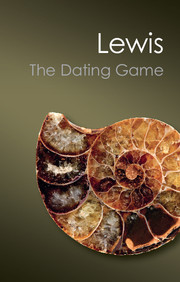Book contents
- Frontmatter
- Contents
- List of Illustrations
- Prelude to the Game
- A Brief History of Time
- Darwin's Sorest Trouble
- Mysterious Rays
- Doomsday Postponed
- Holidays in Mozambique
- This Vegetable Prison
- A Brimful of Promise
- Liquid Gold in Yenangyaung
- Durham Days
- The Ardnamurchan Affair
- Rewards and Retributions
- Why does the Sun Shine?
- The Age of Uranium
- The Age of the Earth
- Loose Ends
- Thanks and Acknowledgements
- Selected Bibliography
- Index
Why does the Sun Shine?
Published online by Cambridge University Press: 05 February 2014
- Frontmatter
- Contents
- List of Illustrations
- Prelude to the Game
- A Brief History of Time
- Darwin's Sorest Trouble
- Mysterious Rays
- Doomsday Postponed
- Holidays in Mozambique
- This Vegetable Prison
- A Brimful of Promise
- Liquid Gold in Yenangyaung
- Durham Days
- The Ardnamurchan Affair
- Rewards and Retributions
- Why does the Sun Shine?
- The Age of Uranium
- The Age of the Earth
- Loose Ends
- Thanks and Acknowledgements
- Selected Bibliography
- Index
Summary
The Earth seems to have been born from the star spray of a stellar collision, but only in the realms of imagination can her destiny be foreshadowed.
Arthur HolmesDuring the Second World War, as the Blitz raged over Britain, sixty thousand innocent civilians died and fifty thousand were injured, either caught under a direct hit or trapped in a burning building. Night after night the bombs rained down as more than a million homes were destroyed, an immense amount of damage was caused to industrial installations and many public institutions were ravaged or obliterated. Consequently, all over the country, teams of voluntary fire-fighters were set up to help in emergencies. These volunteers were risking their lives. In universities staff took it in turns to sit and ‘fire watch’ in case the building was bombed or set alight. Blackout instructions were rigorously adhered to and special permission had to be obtained before work in the laboratories could be continued after dark.
Holmes took his turn fire watching in the Durham Science Laboratories along with the other members of his staff, and during the day he lectured large batches of RAF cadets who now came through the department every six months as part of their course. Unfortunately, unlike during the First World War when the call to arms reduced student numbers and increased research time, the need to ‘cram’ these RAF cadets meant that the long vacations disappeared and precious research time was almost non-existent.
- Type
- Chapter
- Information
- The Dating GameOne Man's Search for the Age of the Earth, pp. 179 - 192Publisher: Cambridge University PressPrint publication year: 2012



